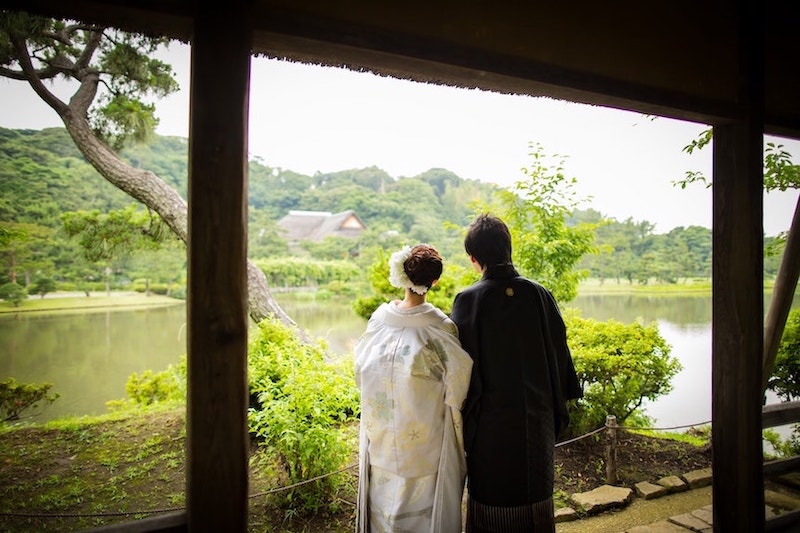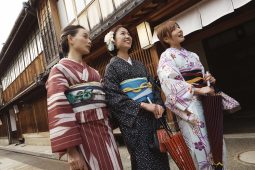Traditionally the Japanese celebrate their wedding in a shrine while wearing gorgeous kimonos and following a procession led by the kannushi (Shinto priest). From the perspective of an outsider, the event looks very sober and yet imposing probably due to the humility and spirituality that emanates from it. Some guests would be wearing either traditional wear or regular clothing which nevertheless would never compared with the sort of outfit guests wear outside Japan. The whole ceremony comes across as low-key compared with some other countries where opulence and flamboyance can be the effect they count on. That is unless you witness one of those celebrations at the famous Meiji shrine where a horde of foreign tourists will start chasing the peaceful procession to hassle the bride and groom with pictures.
However, the past few decades has seen the rise of weddings held in Christian church. A trend that could be explained by the fascination some Japanese people may have for the Western culture. The ceremony is usually conducted by a foreign officiant that may or may not be an English teacher in real life and who celebrates weddings as a side job. The groom will be wearing a suit while the bride will be dressed in a white gown. From a foreign perspective, it does sound very odd that Japanese people would find Western weddings more appealing considering the fact that their traditions come from an ancient culture. Furthermore, religious weddings in the West carries a strong connection to religious faith and anyone who would not have the same beliefs would never contemplate such a type of ceremony.
A very intriguing aspect of a Japanese wedding whatever the style is the presence of the groom’s boss or manager. Quite often the buchō (top management) or even shachō (CEO) for smaller businesses will be the guest of honour at a Japanese wedding. In Europe, a boss might be invited to their employee’s wedding but this would occur only if the newlyweds have a very close personal relationship with them and even so their parents will always be the most important guests of the whole wedding. In general, Japanese nuptials gather a smaller number of guests as opposed to Western weddings which can congregate up to several hundreds of guests depending on the size of the family and their social circle. A greater number of Japanese weddings are becoming restricted to the very close family members particularly when they are celebrated abroad. In fact, many people show interest in celebrating the nuptials in delightful settings like Hawaii or Bali which limits the number of guests that can actually make it to the wedding.
An other interesting point is the meaning surrounding the money that is gifted to the newlyweds. Indeed, the amount chosen follows some very strict rules due to ancient superstitions. Guests would gift between JPY 10,000 and 50,000 based on their financial means and status, but this amount will be either 10,000, 30,000 or 50,000 as it cannot be an even number like 20,000 or 40,000. Indeed, even numbers can be divided which would refer to the correlation with splitting and thus divorce. In other words, those numbers could bring bad omen. Following the wedding, the bride and groom will be offering gifts to their guests for the same value they have been offered. For instance, if a guest donated JPY 30,000 they will give that person a present that amounts to the equivalent price.
Nowadays, besides the usual ceremony wedding companies do not just stick to the typical practices. The bride and groom leave it to their hand to come up with some creative ideas they would then implement to entertain the guests during the event. For instance, an acquaintance attended a wedding in Kobe and related that as part of the celebrations guests were presented a basket of fruit from which each member was to pick one and then approach the bride and groom to present them as a sort of offering.
Either way, there seems to be a lot of freedom in the way Japanese people might celebrate their big day and the least traditional the ceremony will be the more creative the bride and groom can be.








